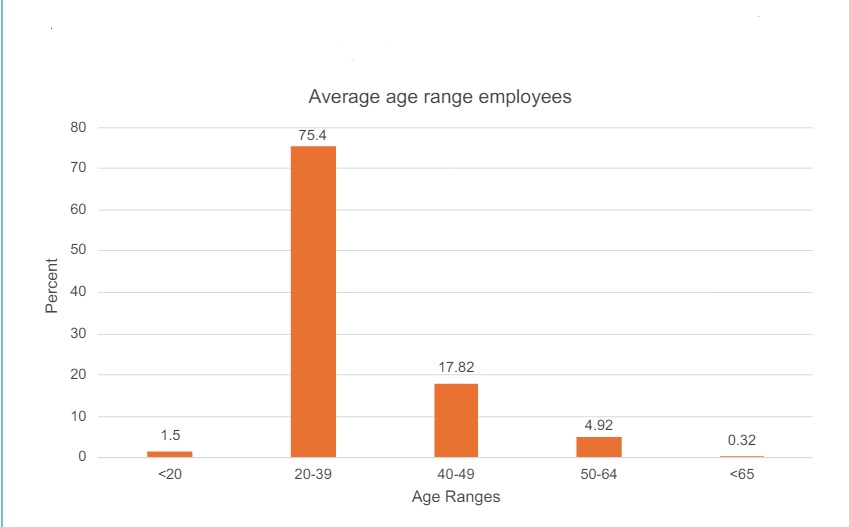DIAGNOSIS OF AQUACULTURE EMPLOYMENT GOVERNANCE IN SELECTED AFRICAN COUNTRIES
Many countries are promoting aquaculture as a key driver of rural economies and employment for women and youth. Most African countries have demonstrated their commitment to advancing the industry’s goals through national programme planning and facilitation of foreign direct investment. However, aquaculture development is impossible without recruiting skilled and satisfied workers to operate the supply chain, as lack of training, including poor stocking, feeding and water management practices, stifle productivity and profits of small-scale fish farms. Thus, the governance of aquaculture employment in Africa requires special attention, particularly in terms of improving employer-employee relations, skills and training of workers across the African aquaculture industry.
In Africa, many countries are promoting aquaculture as one of the main drivers of the rural economy and of employment for women and young people, and most African countries have shown a willingness to promote the objectives of the aquaculture industry, but the constraint of the limited availability of skilled labor is an ongoing challenge for aquaculture businesses. However, aquaculture development is impossible without the recruitment of skilled and satisfied workers involved in the supply chain, as lack of training, including poor stocking, feeding and water management practices, stifles the productivity and profits of small-scale fish farms. Thus, the governance of aquaculture employment in Africa requires particular attention, especially in terms of improving employer/employee relations, skills and education for workers across the aquaculture industry.
However, coherent strategies for employment governance are needed. While these measures are aimed at improving aquaculture development, therefore, immediate change is needed to alter the governance of aquaculture employment in order to promote this sector on the continent. The objective of this research is to improve understanding of aquaculture employment governance in ten African countries (Egypt, Ghana, Kenya, Malawi, Nigeria, Rwanda, Senegal, South Africa, Uganda and Zambia) and determine their level of compliance with aquaculture labor and employment legislation in the selected African countries, in order to learn positive and negative lessons and propose possible corrective measures for substandard practices to improve public perception of aquaculture.
The results of the study show that types of governance vary from country to country, with hierarchical governance predominating at the public level and participatory governance more identified at the private level.

Fig 1 : Average age of aquaculture employees in ten selected African countries, September 2022. Countries are Egypt, Ghana, Kenya, Malawi, Nigeria, Rwanda, Senegal, South Africa, Uganda and Zambia (FAO, 2024)
According to the survey results presented in Figure 1, the age profile of employees showed that the aquaculture workforce is predominantly made up of young people, with 75.4 percent of workers aged between 20 and 39. This means that the age group targeted by aquaculture is ideal for future aquaculture expansion in Africa.
Fig 2 : Average of aquaculture employees by gender in ten selected African countries, September 2022. Countries are Egypt, Ghana, Kenya, Malawi, Nigeria, Rwanda, Senegal, South Africa, Uganda and Zambia (FAO, 2024).
According to the results in figure 2, at management and supervisory level in aquaculture, men’s participation is three times higher than women’s. Although gender has been on the development agenda for many years, gender inequalities continue to hamper the sustainable development of aquaculture in Africa. Among employed women, the number holding or attending high school was low, slowing their progress in acquiring marketable skills after employment. The data suggest that countries that have improved gender equity have achieved higher levels of economic growth and social and nutritional well-being, especially for children.
The acquisition of training to improve basic skills leads to progress in aquaculture and improved food security, nutrition, economic growth and employment in Africa.
Attracting young men and women to the sector requires increased awareness of workers’ rights to access social security, including paid healthcare and sick leave, maternity and paternity leave, promotion and participation in pension schemes and other benefits, to encourage workers’ self-confidence and willingness to participate in aquaculture programs.
To further stimulate and protect private sector investment and ensure the sustainability of the sector, African countries need to promote policies and seek high-level support, as well as enforce employment regulations to improve worker productivity.
Governments should endeavor to put in place guidelines for the recruitment and employment of workers in the aquaculture sector.
Source : Aquaculture Feed magazine Africa. Volume 1. Issue 2. 2024.
Menezes, A., Ligeon, C., Murekezi, P. & Jolly, C. 2024. Diagnosis of aquaculture employment governance in selected African countries. FAO Fisheries and Aquaculture Technical Paper, No. 715. Rome.

